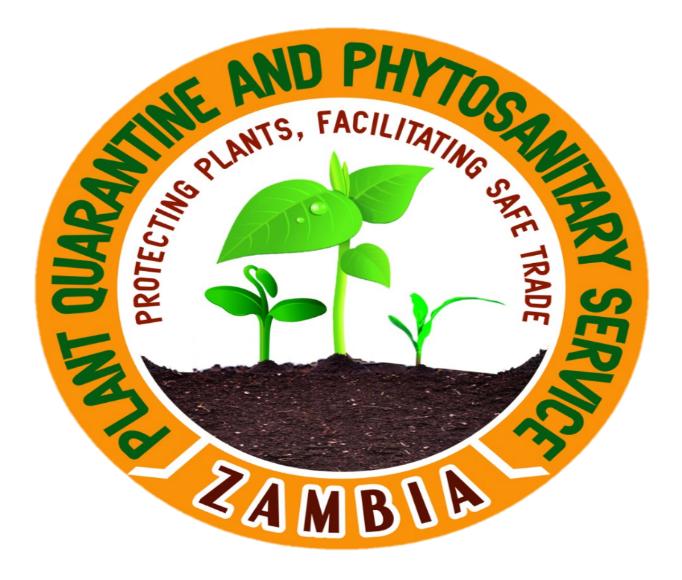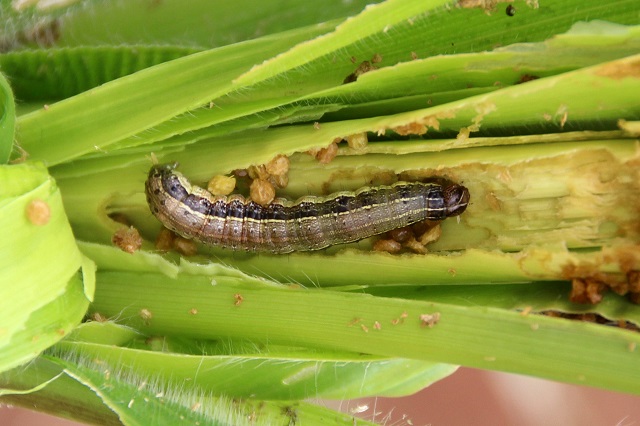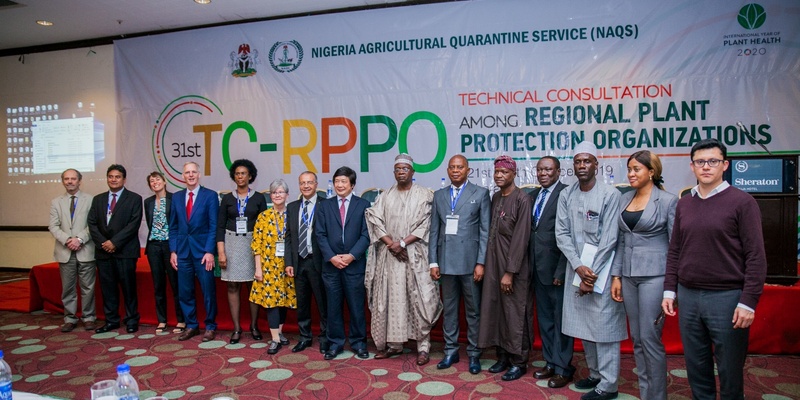PEST INFORMATION VITAL TO FARMERS
By DORCAS KABUYA CHAABA PEST and disease outbreaks can be devastating to farmers especially in Sub-Saharan Africa were the majority of people depend on agriculture for food, nutritional and income security thereby hampering the attainment of Sustainable Development Goals (SDGs) number 1 and 2. In the recent past, countries like Angola, Botswana, Namibia, Zambia and Zimbabwe were affected by the African Migratory Red Locusts were millions of dollars were spent in an effort to combat the outbreak through purchase of pesticides and aerial spraying. The African Migratory Red Locusts are said to breed faster in conditions of drought followed by rain and rapid vegetation growth. This goes without saying that pest outbreaks are becoming increasingly unpredictable due to climate change, as such farmers need pest information services if they are to break even in their agricultural ventures and take appropriate action. To address these plant health challenges which come with change in climate, the Ministry of Agriculture working with the Centre for Agriculture and Bioscience International (CABI), has been implementing the Pest Risk Information Service (PRISE) project, through sending pest alert messages to farmers. Department of Agriculture Director, Moses Mwale, notes that crop loss through pests currently stands at around 40 percent stating that the PRISE programme complemented government’s extension service delivery. Mr Mwale stated that the Ministry of Agriculture through its departments will continue providing all the necessary support in implementing the PRISE project so that farmers can carry out timely pest management measures. “Increasing the resilience of smallholder farmers to pest outbreaks is noble, Pests can decimate crops and are estimated to cause around 40 percent loss and impede food supply chains and safe international trade in plant and plant products,” Mr Mwale added. He further said the project acts as an early warning system for farmers by sending pest alert of selected pests, noting that the gesture was commendable especially in the era of climate change and variability when pests are frequent. “I encourage partners to continue the work and most of all to include more pests that occur in Zambia such as the Fall Armyworm (FAW) and Red Locusts, which can be quite devastating to crops,” Mr Mwale appealed. Mr Mwale said this during the PRISE stakeholders meeting to map the wayforward on the sustainability of the project. The PRISE project is meant to develop early warning system to help cut crop losses resulting from pests using cutting-edge space infrastructure, Earth observation data and state-of- the-art modelling techniques. CABI Southern Africa Regional Representative, Noah Phiri noted that the PRISE project is operating using another CABI led project called Plantwise, a programme that tackle pests and their associated crop losses. Dr Phiri noted that the project is meant to determine how extreme weather patterns can affect farmers and providing the appropriate remedial measures. “Farming is the only source of livelihood for the majority of the people living in different parts of Zambia. However, insect pests and diseases pose a huge economic challenges, as they apart from feeding on the crops and contributing to quantity losses, also create the entry point for fungal diseases,” he explained. Dr Phiri recognised the extension officers for their instrumental role in disseminating the pest alert messages to the farmers. “The pest alert messages were not only Plant Doctors but other extension staff not covered under the Plantwise project including Policy Makers through the Zambia Integrated Agriculture Management Information System (ZIAMIS) platform,” he narrated. Chibombo District Crops Officer, Tiwonge Mihova, noted that with the PRISE project, farmers are informed while in advance of a looming pest outbreak and seek advice from their local extension officer and are able to prepare. Ms Mihova noted extension officers not only disseminate pest alerts to farmers but also encourage the farmers to follow the best agronomic practices which inhibit pest infestation. Meanwhile, Obby Nkani, a beneficiary farmer from Kapiri Mposhi District, commended the implementers of the project in helping farmers mitigate crop loss through pests. “This programme will benefit a lot of farmers as they are made aware of the kind of pests to expect in the farming season, in this way more pests’ information will be covered and shared,” he stated. Farmers who receive adequate and timely pest information are in a position to control and take preventive measures thereby contributing increasing crop production and productivity. In attendance were representatives from National Association for Smallholder Farmers in Zambia (NASFAZ), Smart Zambia, Conservation Farming Unit (CFU), Self Help Africa (SHA), Zambia Agriculture Research Institute (ZARI), Plant Quarantine and Phytosanitary Services (PQPS), Department of Agriculture (both Headquarters and district staff). Others were Zambia Environmental Management Agency (ZEMA), Agricultural lecturers from The University of Zambia School of Agriculture and Natural Resources Development College (NRDC), Zambia Meteorological Department (ZMD) –NAIS






